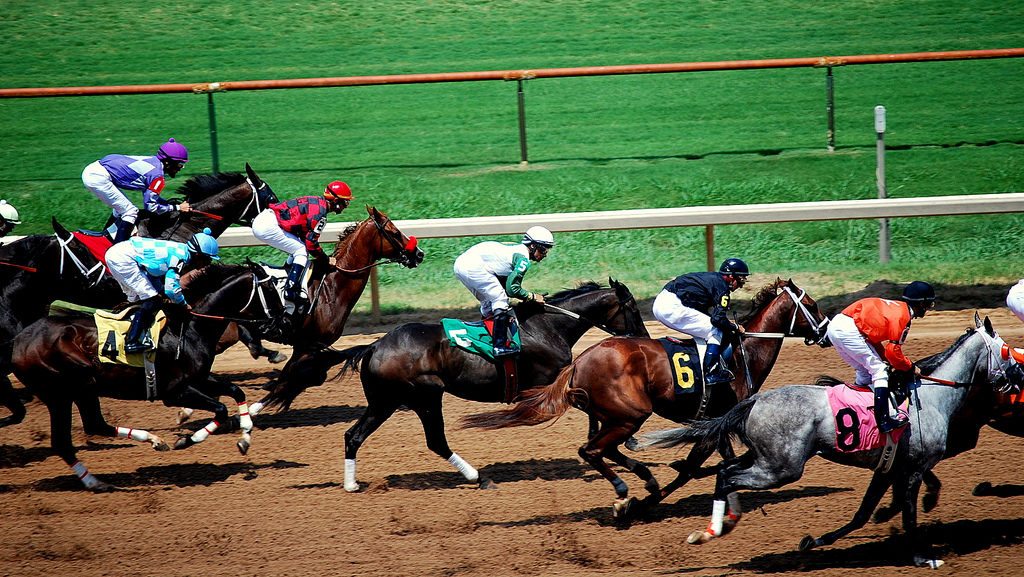Louisiana Veterinarian Sent to Prison for Providing Misbranded Veterinary Drugs to Racehorses

Photo credit: “Horse Race - Louisiana Downs” by donnierayjones on Flickr
The U.S. Department of Justice (DOJ) has reported that Kyle James Hebert, a horse veterinarian from Lake Charles, Louisiana has been sentenced to 15 months in prison. Hebert was earlier convicted of one count of conspiracy, two counts of receipt of adulterated or misbranded drug with the intent to defraud and mislead; and one count of misbranding a drug while held for sale with the intent to defraud and mislead.
According to the DOJ press release on the occasion of his conviction, Hebert was selling Dermorphin, a hepta-peptide and natural opioid that is used by horse trainers to mask horses’ pain, pre-existing injuries, and in high enough doses, act as a stimulant. Dermorphin has not been approved by the U.S. Food and Drug Administration (FDA) for either human or animal use.
Hebert, owner of Southern Equine Sports Medicine, purchased the Dermorphin from Omaha-based Kohll’s Pharmacy & Healthcare Inc, who was also convicted as part of the conspiracy, according to the DOJ. They purchased the Dermorphin from a California chemical company, then repackaged and sold it as D-Peptide, according to the DOJ.
Veterinarian’s Money Digest calls Dermorphin “frog-juice” due to its derivation from the skin of a South American frog, and point out that the Hebert case dates as far back as 2010. They describe how Hebert created a scandal in the local horseracing community, noting that in “2012, the Louisiana State Racing Commission sanctioned 9 trainers whose horses tested positive for dermorphin. Eleven horses linked to these trainers tested positive for the drug, creating one of the most serious offenses in the history of Louisiana racing.”
In addition to being sentenced to 15 months in prison, the DOJ reports that Hebert must also pay a 10,000 fine. Kohll’s Pharmacy & Healthcare Inc. of Omaha, Neb., was sentenced to five years of corporate probation and ordered to pay a $200,000 fine.
The Louisiana State Police and U.S. Food and Drug Administration’s Homeland Security Investigations investigated this case.